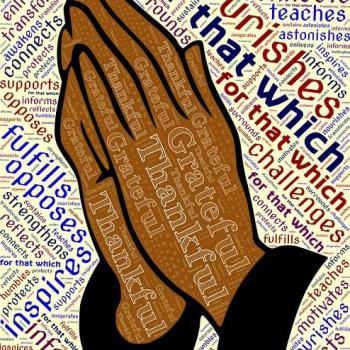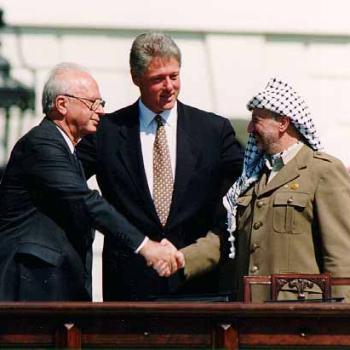The tragic and senseless shooting in Aurora, Colorado serves as something of a cultural barometer. And it takes us inexorably and unwillingly into difficult questions:
- What motivates us to finally pay attention to the violence inflicted on others?
- What do we believe is the root cause of our brokenness as human beings?
- What will make us safe?
I am profoundly saddened by the events in Aurora and my heart goes out to those who have lost loved ones. But there is something strangely adolescent about our reaction as we look on from a distance.
On what motivates us to pay attention:
Our reaction to events of this kind are strangely isolated from the rest of human behavior—and not just behavior across the stretch of human history, but against the backdrop of just the last week. How is it that in a week in which Syria's president slaughtered hundreds more of his own people, a week in which a suicide bomber killed and maimed a busload of Israeli tourists in Bulgaria, and a week in which thousands were killed or injured around the world who went unnamed, that we finally rush onto Facebook to express our outrage at violence?
Are we prepared to engage moral issues with rigor, or is it all finally about moralizing NIBYism ("Oh, no, Now It's in my BackYard)? That's an appropriate and unavoidable way for the people of Aurora to feel. The rest of us need to ask why it takes a tragedy this close to home to motivate us to pay attention.
As my wife told her congregation on Sunday, "Every week is a good week for evil."
On the sources of our brokenness:
In the hours that followed the theater shootings in Colorado, there were many who offered solutions that are deeply rooted in the convictions that shape our culture's understanding of the human predicament: It's therapeutic and social. Discover why a mass murderer could be that psychologically wounded—find new ways to identify people like that, address their emotional problems, and keep them away from firearms.
It does not follow that if you unwind the psychological and sociological factors that contribute to violence, you will discover the explanation for violence. To be sure, behind some crimes lie sociological and psychological factors that exercise more control in some cases than in others. But behind the vast majority of crimes, ultimately there are the critical elements of human volition and the potential for evil. There have been other shy people who grew up in vanilla suburbs, distinguished themselves in school, and then struggled academically. They don't all become mass murders.
Psychological and social forces may inure some criminals to the evil of those choices, but it does not absolve them of their responsibility for them. As important as it is to address the contributing causes, it is a mistake to forget that the issue is ultimately and profoundly a moral and spiritual matter.
How do we insure our safety?
In the hours that followed the tragedy in Colorado, the mayor of New York wanted to know what the candidates for president are going to do to keep this kind of thing from ever happening again. The answer to that question is, "Not a thing."
We can and should analyze the factors at work and ask ourselves what kind of reasonable measures will make us safer without building a world around the criminal behavior of a few. It is worth talking about what we can do to reduce the risks of something like this happening again. And it's worth asking our leaders what they think they that they can contribute to the effort.
But armies of therapists and social workers, assisted by hundreds of laws, and even a President cannot offer us a world where this kind of thing will never happen again. Timothy McVeigh was a man with a pick-up truck and fertilizer. The largest mass murder in this country was accomplished with a few hours of flight training, boarding passes, and box cutters. At least two of the most horrific mass murders in recent memory that were committed with firearms were committed in countries with gun laws that are very different from ours.
Criminologist Marc Goodman sketches a world in which the potential for criminals and terrorists to have an exponential impact on the safety of millions is increasingly likely and demands a far more sophisticated approach to combat it. Rightly, he also argues that it isn't the responsibility of law enforcement agencies alone. It is ours.
That, too, is a spiritual obligation, and we can begin to contribute by having an adult conversation about the issues.
12/2/2022 9:10:30 PM





